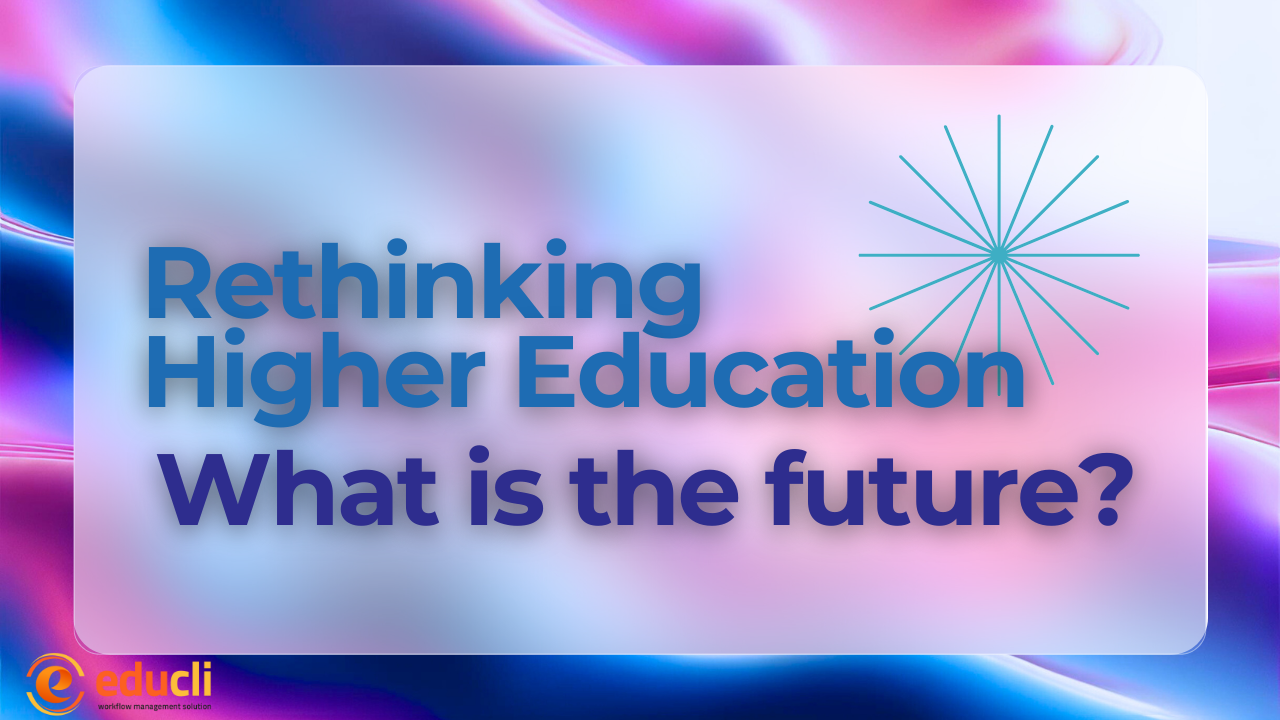Rethinking Higher Education – what is its future?
There is a significant shift taking place in the landscape of higher education, which is occurring in a world that is constantly evolving and introducing new ideas. The traditional model of higher education, which was once considered to be the golden ticket to success, is currently facing increasing scrutiny and competition from alternative learning platforms and unconventional educational approaches. The recent announcement by Donald Trump regarding the creation of a brand-new type of higher education institution has caused some people to consider the future direction of academics.
There is a widespread belief among many young people in today’s society that obtaining a degree from an institution of higher education typically results in a significant financial burden with potentially uncertain returns. The allure of prestigious Ivy League institutions, which are well-known for their powerful alumni networks, continues to exist; however, many people are coming to the realisation that success is not solely defined by the institution from which one graduates.
The idea that the only way to achieve success is to obtain a traditional university education has been disproved by the fact that a large number of successful business owners and industry leaders have emerged from educational backgrounds that are not conventional.
The advent of artificial intelligence (AI) represents a disruptive force that has the potential to revolutionise higher education in significant ways. Because of developments in artificial intelligence, it is now possible to create personalised learning experiences that are tailored to the specific requirements, preferences, and learning styles of each individual student. Educational platforms, powered by artificial intelligence, are able to analyse vast amounts of data to determine the areas in which students are having difficulty and then provide targeted interventions to support their learning journey. Additionally, artificial intelligence has the ability to automate administrative tasks, which frees up valuable time for educators to concentrate on engagements with students that are more meaningful.
Artificial intelligence-driven technologies such as natural language processing and machine learning make it possible to create virtual tutors and immersive learning environments, which improve both engagement and comprehension. With the continued development of artificial intelligence, the incorporation of this technology into higher education has the potential to provide access to high-quality education, enhance learning outcomes, and ultimately reshape the future of academic institutions.
The monopoly that traditional higher education has on the market is being further challenged by the proliferation of Massive Open Online Courses (MOOCs), platforms such as Lynda, and industry-specific certifications offered by leading technology companies such as Amazon Web Services and Google. These platforms and organisations make it possible for individuals to acquire skills at their own pace and as frequently as they require, at a fraction of the cost of traditional education. Access to knowledge and credentials was never easier.
Moreover, the emergence of “YouTube University” highlights the power of self-directed learning as well as the movement toward democratising education. It is now possible for individuals to acquire expertise in virtually any subject matter by utilising the vast array of tutorials and educational content that is available online. This eliminates the requirement for individuals to attend formal educational institutions.
Traditional higher education institutions, according to critics, are frequently geared toward producing workers who are obedient rather than cultivating individuals who are capable of critical thinking and coming up with innovative ideas. There is a cycle of theoretical knowledge that is divorced from practical application that is perpetuated by the fact that many academic programs are taught by instructors who do not have experience from the real world.
The inherent flaws in the current education system are brought to light by Daniel Priestley’s observation that academic success can sometimes be equated with cheating, while ventures that are entrepreneurial are celebrated. The disconnection that exists between the academic world and the real world has resulted in calls for a fundamental rethinking of the way in which we educate the generations that will come after us.
One of the potential paths that could be taken by higher education in the future is the “incubator” industry, which is currently experiencing rapid growth. Aspiring business owners and innovators are provided with the resources, guidance, and financial support that are necessary to bring their ideas into the real world through these special programs. Unlike traditional educational institutions, which frequently place a greater emphasis on theoretical learning than practical application, incubators place a greater emphasis on practical experience and the resolution of problems that are relevant to the real world.
The students in specialist incubators work together with their classmates, who come from a variety of different backgrounds, to form interdisciplinary teams that are able to tackle difficult problems. Because of the fluid nature of these programs, individuals are able to move between different projects and industries, which helps to foster adaptability and resilience in a job market that is experiencing constant change.
It is abundantly clear that a one-size-fits-all approach is no longer adequate as we navigate the development of higher education in the future. Higher education must undergo a transformation in order to accommodate the requirements of a world that is undergoing rapid change. We are able to create a more dynamic and inclusive educational landscape that empowers individuals to thrive in the economy of the 21st century by embracing alternative learning platforms, encouraging an entrepreneurial spirit, and placing a priority on practical experience.





Leave A Comment